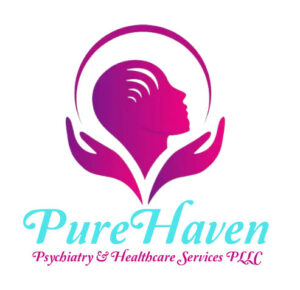ADHD and Depression: Unmasking the Hidden Struggle & Finding Hope
Living with ADHD and depression is a double challenge. While each condition has its own unique symptoms, they often overlap, intensify one another, and create a complex mental health experience—especially when left untreated. Many individuals struggle silently, unsure of what’s causing their mood swings, lack of motivation, or difficulty concentrating. This blog breaks down how ADHD and depression interact, what symptoms to look out for, and how to find lasting support and relief.
Table of Contents
- What Are ADHD and Depression?
- How Are ADHD and Depression Connected?
- Signs and Symptoms of ADHD and Depression
- Challenges in Diagnosis and Misunderstanding
- ADHD and Depression in Women and Teens
- Treatment Options for ADHD and Depression
- How Early Diagnosis Helps
- Call to Action
- Final Thoughts
1. What Are ADHD and Depression?
Attention-deficit/hyperactivity disorder (ADHD) is a neurodevelopmental disorder marked by inattention, impulsivity, and hyperactivity. Depression, on the other hand, is a mood disorder characterized by persistent sadness, hopelessness, and low energy. When both occur together, they can complicate daily life—affecting school, work, relationships, and self-esteem.
2. How Are ADHD and Depression Connected?
The link between ADHD and depression is well-established. Individuals with ADHD are more likely to develop depression due to chronic frustration, social challenges, and a sense of underachievement. The emotional toll of managing ADHD can wear down resilience, making depressive episodes more likely. Additionally, both conditions may share overlapping neurological roots and genetic risk factors.
3. Signs and Symptoms of ADHD and Depression
Recognizing the symptoms of ADHD and depression can be difficult since they often overlap. Here are common signs to watch for:
ADHD Symptoms:
-
Trouble focusing or staying organized
-
Restlessness and impulsive behavior
-
Difficulty completing tasks
-
Forgetfulness and frequent mistakes
Depression Symptoms:
-
Persistent sadness or hopelessness
-
Fatigue or low energy
-
Loss of interest in hobbies or socializing
-
Negative thoughts or feelings of worthlessness
Overlapping Symptoms Include:
-
Difficulty concentrating
-
Sleep disturbances
-
Low motivation
-
Emotional dysregulation
When these symptoms co-exist, they often reinforce each other, worsening overall functioning.
4. Challenges in Diagnosis and Misunderstanding
ADHD is often underdiagnosed—especially in adults and women—due to outdated stereotypes and a lack of awareness about how the condition can present beyond childhood. While hyperactivity may be a noticeable trait in children, many adults with ADHD struggle more with internal symptoms like disorganization, forgetfulness, or chronic procrastination, which can be mistaken for personal failings rather than signs of a neurodevelopmental disorder. At the same time, depression is more widely recognized and frequently diagnosed, which can lead clinicians to focus solely on mood symptoms without exploring potential underlying causes.
When ADHD and depression co-occur, the symptoms of one can easily overshadow or mimic the other, complicating the diagnostic process. Fatigue, low motivation, poor concentration, and emotional dysregulation—hallmarks of both disorders—can blur the lines between them. For example, a person might be prescribed antidepressants for their low mood, while their persistent focus issues and impulsivity go unaddressed. This often results in incomplete recovery or even treatment resistance, as the root neurocognitive challenges of ADHD remain untreated. A comprehensive evaluation that considers both conditions is essential for long-term healing and effective care.
5. ADHD and Depression in Women and Teens
Women and teenage girls with ADHD are particularly prone to being overlooked or misunderstood. Their symptoms often appear as internalized struggles—like anxiety, low self-worth, and emotional sensitivity—rather than hyperactivity. This increases the risk of depression going unnoticed or being misattributed to hormonal changes, stress, or “moodiness.”
Early emotional trauma or academic struggles can further deepen the impact of ADHD and depression in young individuals. Understanding this gendered and age-specific presentation is critical for timely help.
6. Treatment Options for ADHD and Depression
The good news is that ADHD and depression can be treated—often together. A personalized care plan may include:
-
Medication: Stimulants or non-stimulants for ADHD; antidepressants for mood regulation
-
Therapy: Cognitive Behavioral Therapy (CBT) and Dialectical Behavior Therapy (DBT) can target both conditions
-
Lifestyle Changes: Regular sleep, structured routines, and physical activity
-
Support Networks: ADHD coaching, support groups, or family therapy
The key is a holistic approach that acknowledges the interaction between the two conditions instead of treating them in isolation.
7. How Early Diagnosis Helps
Identifying ADHD and depression early can significantly improve outcomes. Benefits include:
-
Quicker access to the right therapy and medication
-
Increased self-awareness and coping strategies
-
Reduced academic, occupational, and social impairment
-
Lower risk of substance use, self-harm, or suicide
Early support empowers individuals to lead fulfilling, stable lives.
8. Call to Action
If you or someone you love is struggling with overlapping symptoms of ADHD and depression, know that you’re not alone—and help is available. At Pure Haven Psychiatry, we specialize in complex mental health cases and offer personalized care tailored to your needs. Reach out today for a professional evaluation and let our team guide you toward clarity, support, and healing.
9. Final Thoughts
Navigating life with ADHD and depression is undoubtedly tough, but it’s not impossible. Understanding how these two conditions influence each other is the first step toward taking control of your mental well-being. With the right diagnosis and compassionate treatment, there is real hope for balance, confidence, and success.
Disclaimer
This blog is for informational purposes only and does not replace professional medical advice, diagnosis, or treatment. If you are experiencing severe symptoms or suicidal thoughts, seek immediate help from a licensed mental health provider or call emergency services.

